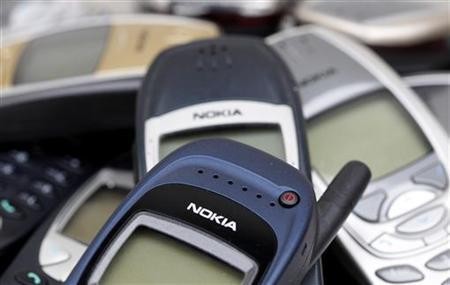
Nokia has cut the price of its flagship smartphone Lumia 900 just a few days before the release of its second-quarter report to boosts its sales in the U.S. but sadly, it led to fall in its shares on Monday.
Shares of Nokia fell by 3.9 percent following the price cut in its smartphone, as it sent out a messasge to the investors that the world's second-largest cellphone maker is desperately trying lure the users of Apple's iPhone and Samsung Galaxy series.
"They are stuck between a rock and a hard place - to drive sales of their devices they are going to have to spend money on marketing and promotions, but at the same time the stock market is demanding they do anything other than spend money," Reuters quoted Ovum analyst Nick Dillon as saying.
Experts are of the opinion that Nokia should come up with phones that are compatible to the latest version of the Windows Phone operating system.
"Nokia cutting the price on the Lumia probably has to do with the phone not being compatible with the next version of the Windows Phone operating system and it needing to clear out its inventory," Business Week quoted FIM Bank analyst Michael Schroeder as saying. "Nobody will want to buy the current version once the new operating system is out."
"The announcement of Windows Phone 8 was a kick in the teeth for Nokia and its high end Lumia handsets which forces it to be more aggressive with the pricing of these devices from now on," Canalys analyst Pete Cunningham told Reuters.
Nokia Lumia 900 is now available for $49.99 with a two-year contract, according to AT&T's website. However, Apple iPhone and Samsung Galaxy S start at $199.99.
Nokia is expected to report a net loss roughly doubling to 706 million euros and burn through more than a billion of cash in just three months, according to a Reuters poll of 38 analysts.
"I don't think that the company will have anything positive to say on Thursday," Mikael Rautanen, analyst at equity research firm Inderes in Helsinki told Reuters. "The third quarter will be very difficult ... The fight to survival will continue."
(With Inputs from Reuters)

















